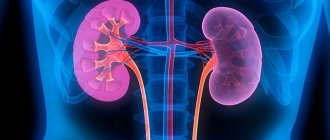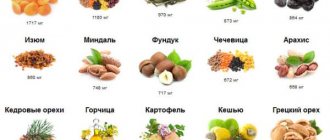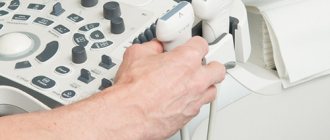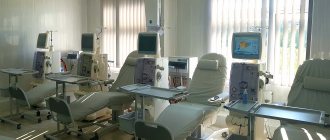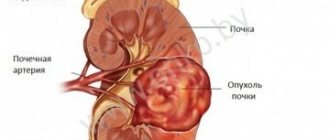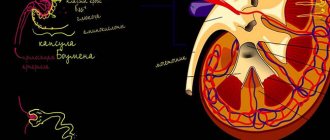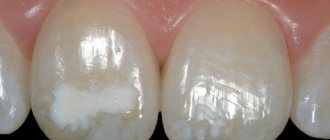An important role of therapeutic nutrition in the complex therapy of kidney diseases is played by pronounced metabolic disorders and possible disturbances in the functioning of the digestive organs. Nutritional therapy is prescribed simultaneously with drug therapy. Diet therapy is based on the main pathogenetic mechanisms of the disease and provides for the need to spare the kidneys, level out metabolic disorders, and potentiate the effect of diuretics and other medications. The possibility of concomitant circulatory failure determines the need to spare the cardiovascular system.
The main differences in diet therapy relate to the amount of protein, salt and water, which is determined by the clinical form, period of the disease and the functional characteristics of the kidneys. What matters is the presence or absence of edema, high blood pressure, azotemia, albuminuria, hypoproteinemia and the degree of their severity.
So, with azotemia, it is necessary to limit protein, with edema and high blood pressure - salt. Noteworthy is the fact that there is no fluid retention in the body on a salt-free diet, and therefore the permissible volume of fluid consumed is determined by diuresis plus 500 ml (extrarenal losses).
Since edema can be associated with proteinuria, hypoproteinemia in the absence of azotemia dictates the need to enrich the diet with protein. It is necessary to enrich the diet with potassium when prescribing a number of diuretics that promote its excretion in the urine and can lead to hypokalemia (dichlorothiazide, furosemide, etc.).
Therapeutic nutrition for kidney diseases involves the use of renal diets No. 7a, 76, 7b, 7 and special fasting diets (sugar, apple, potato, rice compote, watermelon, pumpkin), which help remove fluid and under-oxidized metabolic products from the body, reduce blood pressure and reduction of azotemia.
Nephrotic syndrome
Nephrotic syndrome is a symptom complex characterized by massive proteinuria, hypo- and dysproteinemia, edema and hyperlipidemia. In adults, secondary nephrotic syndrome usually occurs, the development of which can lead to diffuse glomerulonephritis (acute, subacute, chronic), amyloidosis, diabetic glomerulosclerosis, systemic lupus erythematosus, thrombosis of the renal or inferior vena cava, and less often other diseases. Nephrotic syndrome is based on primary pathological changes in the capillaries of the renal glomeruli, leading to an increase in their permeability to serum protein. The tubular apparatus is affected secondarily due to the reabsorption of protein and cholesterol esters. The reabsorption of sodium ions and water increases. Severe damage to the glomeruli of the kidneys can lead to a decrease in glomerular filtration with the development of azotemia.
Nutrition for nephrotic syndrome
Therapeutic nutrition for nephrotic syndrome is aimed at combating hypoproteinemia, edema and other metabolic disorders while sparing the kidneys as much as possible.
Hypoproteinemia and its role in the genesis of edema dictates the need for sufficient glomerular filtration to introduce an increased amount of protein (1.3-1.5 g per 1 kg of body weight per day). An increase in protein content in the blood plasma helps to increase its oncotic pressure and reduce edema. It is especially advisable to introduce complete and easily digestible proteins (meat, fish, cottage cheese, egg whites). With a decrease in glomerular filtration with the subsequent development of azotemia, the amount of protein in the diet should be limited.
Salt-free diet
Since sodium is retained in tissues and plays an important role in the genesis of edema, the amount of salt in the diet is sharply limited. Food is prepared without salt. Special salt-free bread is used, foods rich in salt (herring, pickles, marinades, etc.) are excluded. However, long-term use of a salt-free diet can lead to the development of chloropenic azotemia, impaired renal function, hyperaldosteronism, and the appearance of edema that cannot be treated with diuretics. In order to prevent these phenomena, it is recommended to give patients 3-4 g of salt once a week on a salt-free diet. In the stage of polyuria, with a decrease in edema, it is allowed to increase the amount of salt up to the norm, since sodium is lost in large quantities in the urine.
Potassium
The potassium content in the diet should be sufficient, since the body loses a lot of it. Potassium helps displace sodium, and along with it, fluid from the body and reduce swelling. It is especially important to enrich the diet with potassium salts when using diuretics that promote the removal of potassium from the body (dichlorothiazide, furosemide, etc.). However, when diuresis decreases to less than 500 ml, potassium must be administered more carefully, as it accumulates in the body and can have a toxic effect. During this period, it is advisable to monitor the potassium content in the blood. Vegetables and fruits are especially rich in potassium salts.
Liquids
Against the background of a salt-free diet, the amount of liquid consumed by the patient is not significantly limited. Its amount should correspond to diuresis plus 500 ml (extrarenal losses). In the presence of hyperlipidemia, the amount of fat is somewhat limited, mainly due to animal fats rich in cholesterol, partially replacing them with vegetable oils. It is necessary to enrich the diet with lipotropic substances.
Harmful foods for the kidneys
Poor diet and lifestyle habits can damage your kidneys:
High sodium intake
Eating high sodium foods over a long period of time causes the kidneys and kidney cells to enlarge. It also leads to kidney fibrosis, which causes hardening of the kidneys, loss of kidney function, which ultimately contributes to the development of kidney failure.
Excess sodium intake reduces the kidneys' ability to filter waste products.
In addition, foods high in sodium may blunt the effects of medications that reduce the symptoms of hypertension. This leads to high blood pressure, which further damages the kidneys.
Research has shown that limiting sodium intake plays a huge role in preventing kidney damage.
Foods high in sodium include:
- Canned meat
- Frozen food
- Canned beans
- Packaged food
- Salad dressing
- Ketchup and adjika
- Pickles
- Ready-to-eat products
- Bread
- Broths
- Processed foods
Drinks containing sugar
Drinking drinks high in sugar increases the risk of obesity. All we get from sugar are “calories”, no nutrients.
One study found that drinking 2 or more sugary soft drinks per day was associated with a rapid decline in kidney function.
Sugar reduces the glomerular filtration rate, which is an important indicator of kidney function. In this regard, the ability of the kidneys to remove unnecessary substances from the body decreases.
Additionally, carbonated drinks have also been linked to the formation of kidney stones. Phosphoric acid is added to such drinks, which causes changes in urine that contribute to the formation of kidney stones.
Therefore, it is best to limit your intake of carbonated drinks and diet colas. White or refined sugar should be replaced with organic honey or low glycemic index organic coconut sugar.
High Protein Foods
Consuming red meat daily over many years may increase your risk of developing chronic kidney disease, a study has found, while consuming white or lean meat and dairy proteins has no such effect, and plant proteins may be protective for the kidneys.
High protein foods can add stress to the kidneys as they need to work harder to clear protein metabolites from the body.
Large amounts of calories from protein foods can cause kidney damage and increase glomerular filtration rate (GFR). This, in turn, will lead to the excretion of important nutrients needed by the body.
Therefore, it is best to eat a combination of lean meat protein, dairy protein, and plant protein. Animal proteins can damage the kidneys, increasing their load.
Healthy protein is found in foods such as
- Legumes and legumes
- Soy and soy products such as tofu
- Low-fat milk and dairy products
- Eggs
- Chicken and turkey
- Fish and shellfish
- Nuts and oilseeds
Eating large amounts of fatty foods
It is well known that eating unhealthy fatty foods affects the functioning of the heart, in addition, this fat can damage the kidneys.
Studies have shown that hyperlipidemia is associated with progressive renal failure. Thus, dietary fats affect the structure and function of the kidneys.
The glomerulus is the part of the kidney that filters blood to form urine. Eating foods rich in saturated fat reduces the number and size of glomeruli. This prevents the blood from filtering, which leads to the accumulation of toxic substances in it. This can be life-threatening.
Additionally, high intake of saturated fat causes albuminuria, which is excess protein in the urine. A healthy kidney does not pass proteins from the blood into the urine. But kidney damage from saturated fat leads to protein loss in the urine. Sources of saturated proteins are
- Salo
- Beef
- Pork
- Processed meat
- Palm oil
- Whole milk
- Butter
- Cream
- Cakes, pastries and other baked goods
It is worth consuming foods such as milk, butter and creams in moderation. You should avoid the products listed above or at least reduce their consumption.
Smoking cigarettes
Smoking cigarettes is harmful to health. It not only affects the lungs, but also has harmful effects on the kidneys.
Scientific studies have shown that cigarette smoking is a risk factor for the development and progression of chronic kidney disease. Smoking causes direct damage to kidney cells and their filtering units.
Smoking impairs kidney function, increasing the risk of excreting albumin and protein in the urine.
Smoking is associated with increased levels of inflammatory markers. This information suggests that inflammation may contribute to kidney dysfunction, the study says.
Inflammation increases the production of reactive oxygen species, which damage kidney cells. Reactive oxygen species also affect the arteries of the kidneys, damaging the lining and promoting the formation of plaque in the arteries. This makes it difficult for oxygen- and nutrient-rich blood to flow to the kidneys, which can cause harm.
Alcohol
Chronic alcohol consumption can lead to impaired kidney function. Alcohol directly affects the kidneys, changing the structure and function of these organs.
Excessive alcohol consumption causes enlargement of the kidney tubules . An animal study found that the group given alcohol experienced swelling and decreased kidney function.
Drinking alcohol can also cause your body to lose essential ions and electrolytes. This is because alcohol damages the kidneys, reducing their ability to reabsorb important ions and electrolytes. This is caused by a deficiency, which then has a negative effect on the body.
An important function of the kidneys is to maintain homeostasis in the body. Drinking alcohol can cause imbalance and disrupt homeostasis. Disturbed homeostasis affects the functions and reactions of the body.
People with diabetes and hypertension have a much higher risk of kidney disease. By drinking alcohol, they are susceptible to faster development of kidney dysfunction.
Sedentary lifestyle
Physical activity affects the health of all internal organs.
Kidney damage and dysfunction are directly related to physical inactivity and a sedentary lifestyle . While physical activity promotes favorable kidney function and less damage.
Studies have also shown that sitting for more than 30 minutes has a negative impact on kidney function.
The development of endothelial dysfunction is also associated with a sedentary lifestyle. This disease reduces the density of capillaries, which prevents oxygen and nutrient-rich blood from reaching the kidneys.
In addition, a sedentary lifestyle is associated with an increased risk of developing hypertension, type 2 diabetes, and dyslipidemia. All of these health conditions have a direct negative impact on kidney function.
Insufficient water consumption
Drinking water in moderation helps in cleansing the body of excess sodium and toxins. The accumulation of waste products leads to kidney damage.
Not having enough water in the body can cause urine to become concentrated with minerals and waste products, increasing the risk of kidney stones.
Moderate dehydration reduces blood flow and causes kidney damage. Some studies have shown that frequent mild dehydration can lead to permanent kidney damage.
Therefore, it is important to drink plenty of water. However, people with low kidney function or kidney failure should consult their doctor.
Excessive use of medications
Anything too much in the body is harmful to health. Although medications can cure health problems, they can harm your kidneys.
Drugs may have direct nephrotoxic effects; excretion of drugs in urine through the kidneys can cause kidney damage.
Some drugs damage the blood vessels in the kidneys and cause damage to these organs. This injury significantly reduces kidney function.
Long-term use of drugs, especially painkillers, can cause structural damage and impairment of kidney function.
Overdose of drugs increases the oxidative load and destroys kidney cells.
Therefore, when choosing a drug, consult your doctor.
Therapeutic diet No. 7
To implement the above principles of diet therapy, therapeutic diet No. 7 should be taken as a basis.
At the Institute of Nutrition of the USSR Academy of Medical Sciences, diet No. 7c was proposed for patients with nephrotic syndrome. It contains:
- 125 r proteins (of which 80 g are animal),
- 80 g fats (of which 25 g are vegetable),
- 450 g carbohydrates (of which 50 g refined),
- 2-3 g salt (in products),
- 0.8 l of free liquid;
12,644 kJ (3020 kcal).
Food is prepared without salt; salt is not given out. However, depending on tolerance, it should be done after 1-1.5 months. dispense 4-5 g of salt onto your hands.
Sample one-day menu for the M7v diet
1st breakfast:
steamed omelette stuffed with meat (150 g), marinated krill paste (180 g), tea with milk (200 ml). 2nd breakfast: prunes (50 g).
Dinner:
vegetarian pearl barley soup with vegetables in vegetable oil (250 g), meatballs baked in sour cream (1 g), stewed carrots with prunes (190 g), fresh apples (100 g).
Afternoon snack
: rosehip decoction (100 g), steam pudding from low-fat cottage cheese (150 g), tea (100 ml).
For the night
: kefir (200 g). For the whole day: wheat bread (100 g), bran bread (150 g), sugar (30 g).
Once every 7-10 days it is advisable to carry out fasting days
(potato, apple, sugar, rice-compote, etc.). Fasting days help remove nitrogenous waste and fluid from the body.
To improve the taste and tolerance of salt-free food, it should be flavored with allspice, cumin, bay leaves, sour fruit juices, and a weak solution of vinegar. You should not eat horseradish, radish, mustard, garlic, radishes, onions, parsley, dill, as they contain significant amounts of essential oils that irritate the kidneys and increase albuminuria and hematuria. For the same reason, foods containing calcium oxalate (spinach, sorrel, etc.) should be excluded from the diet. In cases of severe impairment of the nitrogen excretory function of the kidneys, patients are transferred to a diet recommended for chronic kidney failure.
What do the kidneys “like” and what do they “dislike”?
Since today is kidney day, let’s continue the topic about them. Nowadays, the kidneys work under enormous overload. Who in the body is responsible for neutralizing harmful substances that enter the human body? - First of all, two organs - the liver and kidneys.
Let’s find out what the kidneys “love” and what they “don’t like”? Let's start with what
they love:
- The kidneys love dry, warm air. In warmth, the blood vessels of the kidneys dilate. Their blood supply improves. But dry heat is especially useful. — Healthy kidneys like a person to drink a sufficient amount of water. If there is no edema (hidden or obvious), there is no renal or heart failure, you should drink at least 2 liters per day. The kidneys will excrete excess water in urine. Moreover, they can easily remove, along with excess water, all harmful substances that need to be removed. And if little water is consumed, then the kidneys have to retain it in the body and save it. Less urine is produced. And to remove large amounts of harmful substances, urine has to be highly concentrated. It's harder on the kidneys. — The kidneys love, of course, clean water. If the water is contaminated, then the kidneys have to remove with urine not only toxic substances that come from food and are formed in the body itself, but also harmful substances contained in the water itself. This is again an extra burden. So you need to drink clean water. In the summer, it is advisable to give the “kidneys a vacation.” Drink, at least for a while, clean well or spring water. — The kidneys love foods and medicinal plants that have a mild diuretic and disinfectant effect on the urinary tract. These are watermelon, cucumbers, parsley, dill, celery, rose hips, birch sap, strawberries, strawberry leaves and others. — The kidneys love a horizontal body position. At the same time, their blood supply improves. This may not have much significance for healthy kidneys, but it must be taken into account if everything is not in order with the kidneys. If your kidneys are not entirely healthy, you need to lie down more. Daytime rest in a horizontal position is advisable.
What don't the kidneys like?
— Kidneys don’t like cold. It is dangerous to sit on something cold and damp, on a stone, on damp ground. By the way, for this reason, kidney diseases often occur among tourists, fishermen, and those spending the night in cold conditions. It is dangerous to stay in cold water for a long time. Before and after being in cold water, you need to warm up so that the kidneys do not have time to become hypothermic. Pyelonephritis is the main danger for inexperienced “walruses”. — It is dangerous in general, and especially in old age, in the cold season, to wear short jackets, for women to wear light skirts with thin tights. Better warm pants. — The kidneys do not like a lot of salt in the diet. After all, the kidneys have to remove excess salt. It's better to under-salt your food. Salty foods are not eaten regularly, but as holiday dishes. — The kidneys do not like excessive amounts of protein animal foods. After all, proteins are not stored and are not broken down into carbon dioxide and water, like carbohydrates and fats. Excess proteins are broken down to form the final products of nitrogenous breakdown: creatinine, urea, uric acid, which are not harmless and must be excreted by the kidneys. Therefore, the now fashionable protein diets for weight loss are simply a blow to the kidneys. — The kidneys do not like alcohol abuse. If your kidneys are not okay, be careful. By the way, people who abuse alcohol are much more likely to have bladder cancer. — Chronic foci of infection have a bad effect on the kidneys. Because they cause constant, albeit slight, intoxication, and the kidneys must remove toxic substances. In addition, microbes from these lesions can enter the blood. And then to the kidneys. And cause inflammatory kidney diseases.
Taking these rules into account, take care of your kidneys.
Acute glomerulonephritis - diet
Basic dietary requirements:
limiting table salt, limiting simple carbohydrates, protein, reducing the energy value of the diet taking into account energy consumption, providing the body with the entire spectrum of vitamins.
It is most advisable to prescribe sodium-free nutrition to patients in the first 2-3 days in the form of contrast days (potato, apple, watermelon, pumpkin, banana, sugar, compote, kefir). For the whole day you are given: 1.2 kg of baked potatoes, 1.5 kg of apples, 1.5 kg of watermelon, 1.5 liters of compote, 1.2 kg of bananas, 1.2 kg of baked pumpkin with sugar. The total amount of product is divided into 5 parts and consumed throughout the day.
The amount of fluid per day for a patient with an acute process is determined as follows: 400 ml is added to the daily diuresis (urine output). With acute glomerulonephritis, excretory function is not impaired, therefore, as the patient’s condition improves, the diet is expanded (increased protein, carbohydrates). But you must remember that we limit salt to 3-4 months!
Chronic renal failure
Chronic renal failure is a symptom complex caused by irreversible, severe damage to kidney function. Kidney failure cannot be reduced only to a violation of the nitrogen excretory function of the kidneys and the accumulation of toxins in the body. Deterioration of kidney function leads to severe changes in water and electrolyte metabolism, as well as other metabolic disorders. Diet therapy
– an essential component in the treatment of chronic renal failure!
Diet for chronic renal failure
Basic principles of diet for kidney failure:
1. Limit protein intake from food to 20, 40 or 60 g/day. 2. Providing sufficient energy value of the diet from fats and carbohydrates, full provision of vitamins and microelements. 3. Limitation with increased salt and water pressure.
The main products in the diet are meat, fish, eggs
, but subject to restrictions (20-60 g/day). To improve the taste of food, it is allowed to add spices, herbs and sour vegetable and fruit juices. All food is prepared without salt. The liquid is given in the form of diluted fruit or vegetable juices, alkaline mineral water.
The main thing is that if the patient wants to break the diet, allow it! Errors can happen sometimes!
doctor
Cottage cheese can harm the kidneys
Photo: social networks In simple, street language, I, as they say, “got it.” Moreover, the trouble came from where I had never expected it. I have problems with my kidneys. This diagnosis, to put it mildly, was puzzling, since I do not abuse alcohol, and I simply cannot stand beer. I try to eat right. I really love cottage cheese in any form, including cheesecakes. With sour cream, jam, or whatever. But it seems that all this is in the past. The doctors said that I should refrain from consuming this fermented milk product. They stated that kidney problems arose, among other things, because of my partial attitude towards cottage cheese. But everyone knows that this product benefits people at almost any age, and I have never heard that it can be harmful. Maybe I have some kind of individual intolerance? Dmitry Kostikov, Moscow
Especially for the author of the question, we will again have to recall some, as they say, common truths: everything is good in moderation. Any product, even the most useful one, can always cause harm to a certain group of people, since each person’s body is individual. And cottage cheese is no exception.
IN PARTICULAR, this product contains a lot of salt. Per 100 g of cottage cheese there is approximately 400 mg of sodium chloride. For reference: doctors believe that the daily norm is 1500 milligrams. In addition, casein protein, which is contained in cottage cheese, can cause swelling of the joints, and therefore it is necessary to observe the consumption rate, especially for older people. The recommended dose is 100 g of full-fat cottage cheese, 150 g of classic cottage cheese and 200–250 g of low-fat cottage cheese. And it’s best not to eat it every day, but at least every other day . A fatty product in large quantities can cause obesity, increased cholesterol and atherosclerosis. Too much protein increases the load on the excretory system and can actually cause kidney problems.
Support the publication
- Join the CLAN
Or
And perhaps the most important thing is the quality of the product . It must be consumed fresh and always carefully look at the composition and store it correctly. Especially now, when the majority of the population consumes store-bought products. If grains are stored improperly, pathogenic microflora develops, and this contributes to the development of E. coli, and then you can even get botulism .
There are other contraindications, such as lactose intolerance, gastritis, increased acidity of gastric juice and other pathologies.
So don't hesitate to consult with dietitians and therapists.
Add AN to your sources so as not to miss important events - Yandex News
- NATO scrambled combat aircraft due to Russian fighter jets approaching the area of HMS Queen Elizabeth in the Mediterranean
- German researchers said that some medications can provoke acute gastritis
- Nutritionist Popova warned that giving up salt can lead to a heart attack
- Do you think being healthy is expensive?
- Virologist Altstein said that “by any means” we need to vaccinate as many people as possible against coronavirus
- Latvian gastroenterologist Ilza Plavina: Gastritis often occurs at a young age
- He hasn't drunk water since the war.
- An oncologist reveals a health-threatening symptom mistaken for gastritis
- Ukraine threatens to open fire on Russian ships in the Kerch Strait
- Nutritionist Mariyat Mukhina advised which products are best to combine cottage cheese with
- Nutritionist Pyryeva explained why she craves sweet, spicy or salty foods
- A lack of salt is harmful to the human body, as is its excess
- Myasnikov warned that excessive salt consumption can lead to stroke and cancer
- Sohu about the incident with the Defender destroyer violating the borders of Crimea: “Russia did not swallow this impudence”
Become a member of the CLAN and every Tuesday you will receive the latest issue of “Arguments of the Week” with a discount of more than 70%, along with exclusive materials not included in the newspaper. Get premium access to a library of the most interesting and popular books, as well as an archive of more than 700 published issues for FREE. In addition, you will have the opportunity to benefit from free legal advice from our experts for a whole year.
- Enter your email address, then select any convenient payment method for your annual subscription
- Scan the QR. In the Sberbank Online application that opens, enter the annual subscription cost (490 rubles). Then send the confirmation code by email
Or
Stay with us. Add us to your sources and subscribe to our social networks.
Yandex Zen Telegram Google News MirTesen Twitter VKontakte Odnoklassniki Facebook
